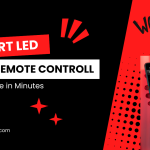The Best Fluffy Pancakes recipe you will fall in love with. Full of tips and tricks to help you make the best pancakes.
The Power of ESP32 in IoT Projects
The ESP32 microcontroller has gained immense popularity in the world of IoT due to its powerful features and versatility. In this comprehensive guide, we will explore how you can leverage the power of ESP32 in your IoT projects by understanding sensors, components, and some fun facts about this remarkable device.
Sensors for ESP32
One of the key aspects of IoT projects is the ability to collect data from the environment using sensors. ESP32 is compatible with a wide range of sensors, including temperature sensors, humidity sensors, motion sensors, and more. By integrating these sensors with ESP32, you can create smart devices that can monitor and respond to changes in their surroundings.
Components for ESP32
In addition to sensors, ESP32 can be connected to various components to enhance the functionality of your IoT projects. Components such as actuators, displays, relays, and LEDs can be easily integrated with ESP32 to create interactive and responsive IoT systems.
Fun Facts about ESP32
Did you know that ESP32 is equipped with both Wi-Fi and Bluetooth connectivity, making it ideal for IoT applications that require wireless communication? Another interesting fact is that ESP32 is highly energy-efficient, allowing for long battery life in battery-powered IoT devices.
Conclusion
By exploring the power of ESP32 in IoT projects and understanding the different sensors, components, and fun facts associated with this microcontroller, you can unlock endless possibilities for creating innovative and intelligent IoT solutions. Whether you are a beginner or an experienced IoT enthusiast, ESP32 is a valuable tool that can take your projects to the next level.




